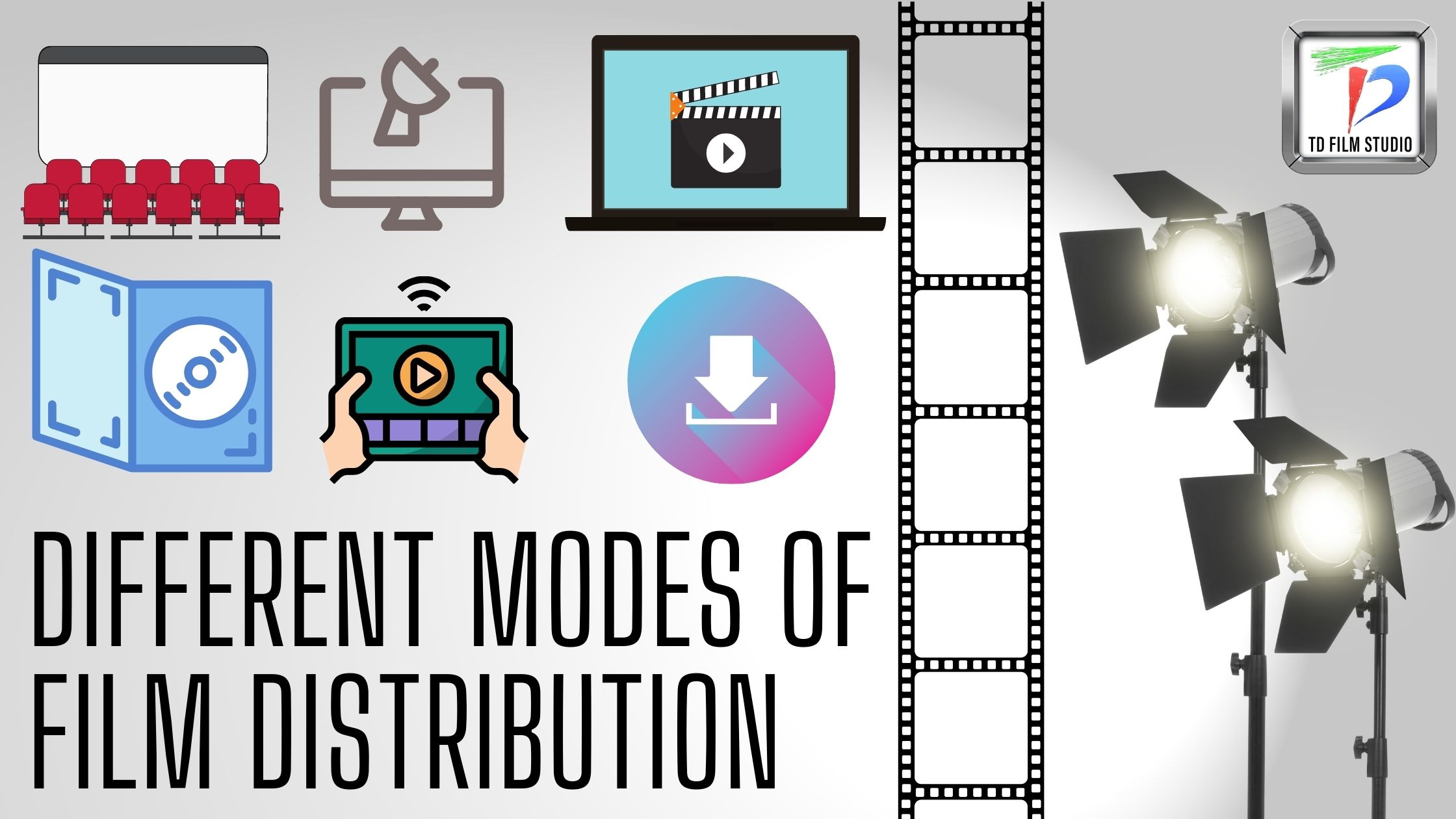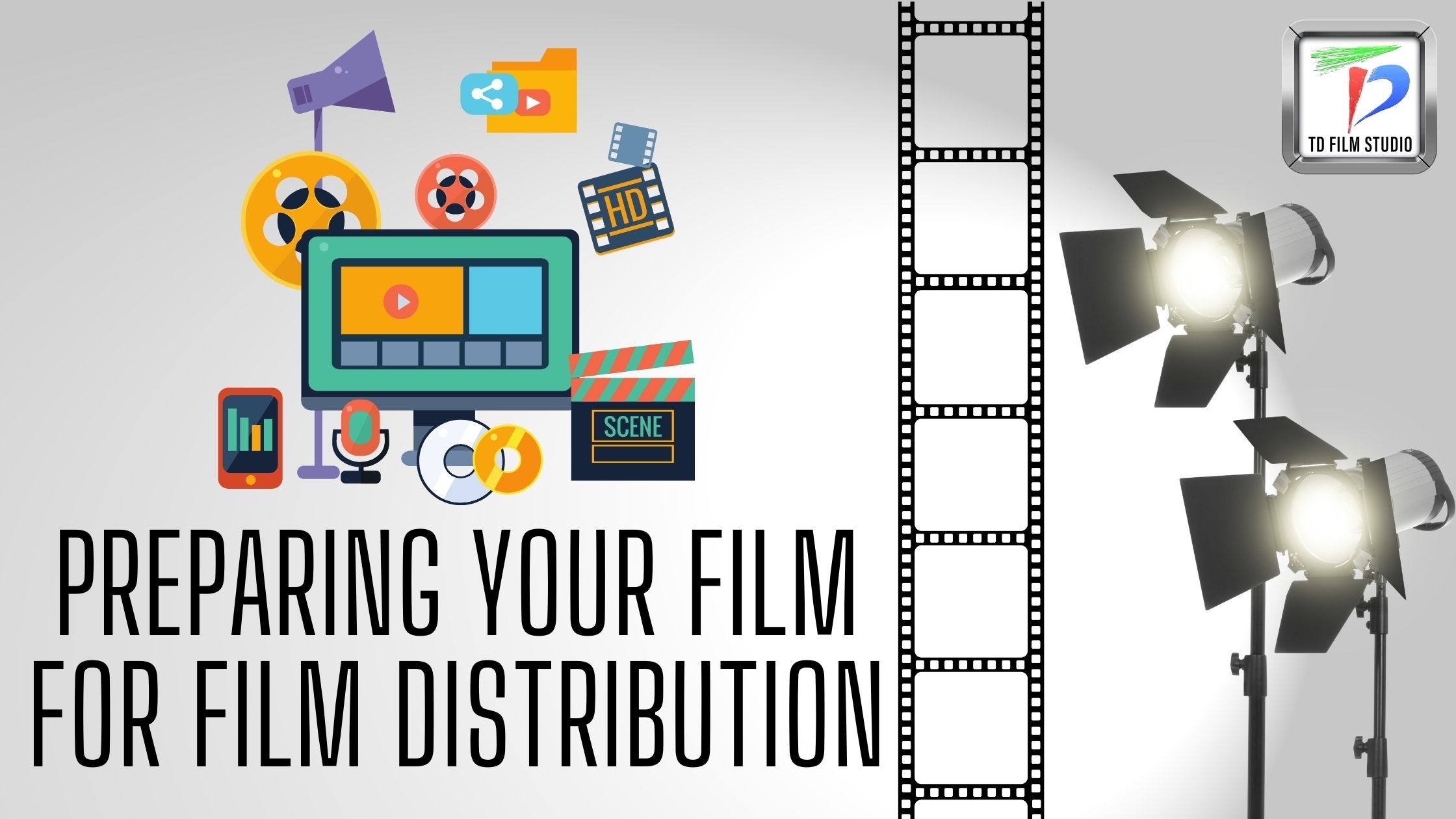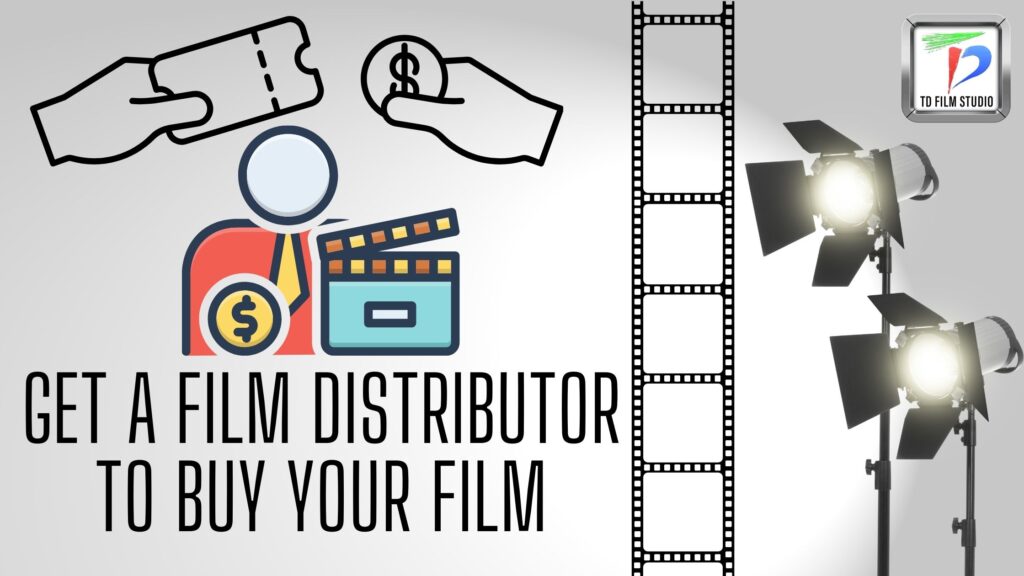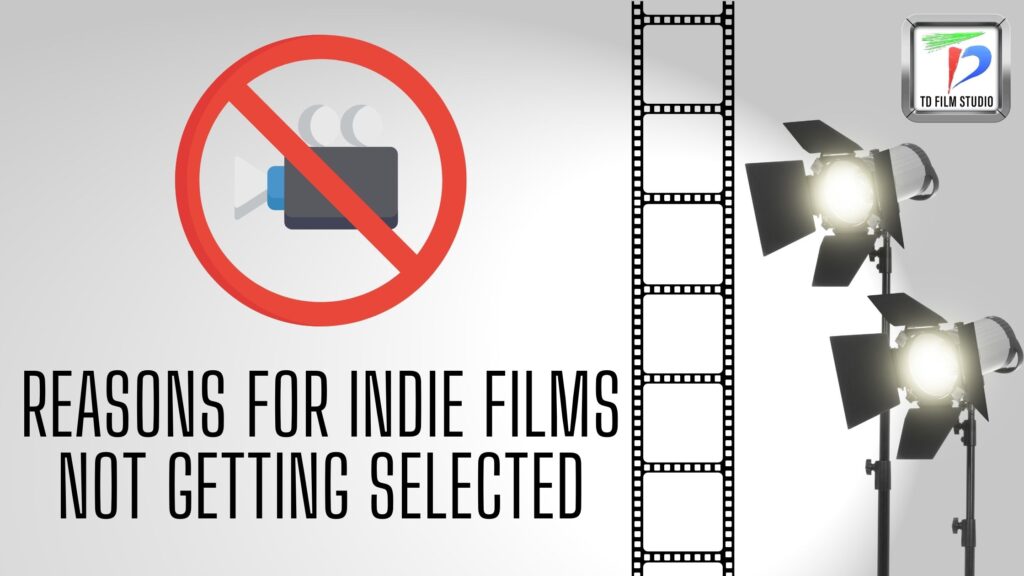
Film distribution is a crucial step in the filmmaking process, especially for an indie film, because it determines how your film gets released and seen by the public. Without it, any indie filmmaker is lost in a sea of content with little hope of being found by an audience.
It’s not easy to make a movie. So the last thing you want is for your film to be sitting on some warehouse shelf, collecting dust and never having seen the light of day. Independent filmmakers are often intimidated by the process of distributing their films.
The majority of independent films never reach the movie theater, so what is the point? Maybe you feel like your film doesn’t fit into any genre or category and will be difficult to market. What does it take for a filmmaker to get their work seen by audiences?
Instead of being discouraged, we have created a guide to help you with the film distribution process. This is not an exhaustive list, but it will lead you in the right direction and give tips on getting started.
There is so much information about film distribution, but it’s hard to know which sources you can trust. This blog post will explore how film distribution works: what it is, why filmmakers need it, how you can do it yourself or hire a company to help you out. We will also give some tips for navigating the increasingly crowded marketplace and provide some tips on what they should look out for when signing with a company.
I’ll be covering topics such as: what “distribution” means, theatrical and digital distribution, how to find film distributors for your film and upcoming changes in the world of film distribution and cinema that may affect filmmakers.

What are the different modes of film distribution currently available?
There are many things to consider when making your film. You will need a distributor; these partners will distribute your film, buy advertising, and take word-of-mouth to promote your movie. The first step is picking a film distribution company. Although the most common choice is a big reputed studio, small indie distributors can also be a fantastic choice.
The film distribution landscape is changing rapidly. With the advent of OTT Services and the VOD platform, there are more ways to get your movie in front of an audience than ever before. But with so many platforms, who the heck knows where to start? Please read on to learn more.
First off, you need to know what kind of distribution channels exist for your film. Primary film distribution options include –
- Theatrical release (theater, cinema hall),
- The DVD release (video stores),
- Cable TV airplay (cable television),
- Online rental VOD platform such as Netflix or Amazon Prime Video;
- Streaming platform video services such as Hulu or YouTube Red;
- Digital distribution download sites like iTunes;
- Pay per view services that offer films through cable companies like Cox Communications and Comcast Xfinity

How are independent films different from studio films?
There are two types of films. The first type is an independent film, and the second type is a studio film. Independent films follow their own path in terms of film distribution, while studio films have specific film distribution channels before they are released.
To find out which one you fall into, it’s essential to know how each process works.
Independent film is a lower budget production that takes more risks and can be considered more innovative than the average Hollywood or Bollywood movie. Studio films are blockbuster feature film productions from significant major studios that want to appeal to as broad an audience as possible while still making money.
In our blog posts, we will be primarily addressing independent filmmakers.
Independent filmmakers are often self-funded or funded through friends and family money and seldom procure a producer. Suppose they are lucky enough to get some sort of funding from a traditional venture capitalist. In that case, it usually comes with strings attached that limit how much creative control they can maintain over the final product (e.g., having to include certain actors in your cast).
There’s no doubt about it: as an independent filmmaker, it’s not easy – but there are ways that these artists can make sure their films reach audiences around the world!
Independent filmmaking is an art form that is on the rise. With all of the new platforms for film distribution, more and more filmmakers are creating their own movies to share with audiences worldwide.
After finishing your movie, you’ll want to get yourself an agent or distributor by sending them your script and reel (if available). An agent will help distribute your project on behalf of the filmmaker and negotiate deals with distributors; a distributor will handle all aspects of marketing and releasing the project for a distribution fee (usually 10% – 12%).
According to a recent survey of the film market, currently only a small percentage of independent films receive theatrical distribution and are able to make it to the theater, or get digital distribution and accepted into the top OTT Platforms like Netflix and Amazon Prime, unless they have won awards at one of the major film festivals or feature an ensemble cast of A-list celebrities.
Once you begin selling your film, it becomes more difficult than ever to convince companies to pay the entire license fee upfront. Be prepared for payment plans that are spread out over an extended period of time.

Are Film Festivals the best destinations for film distribution?
Many producers and sales agents believe that your film must screen at a major festival in order to be purchased. It’s certainly an honor to get your film selected at Toronto, Sundance, or other prestigious festivals. Nonetheless, it is not required, and it is not always beneficial. Hundreds of films are screened at each festival. As a result, it will be more difficult for your film to garner attention or stand out.
At a festival, there are more films than any buyer can possibly see. And, frequently, a buyer will have to cover two or three films playing concurrently, which means they will be rushing back and forth between screenings, missing out on each film. Or they may really enjoy the first film, in which case they would never leave to see another film.
Another scenario is that a good film is overshadowed by other films that are either good or simply attract a lot of attention. In each of these instances, the festival will not benefit your film.

How to prepare your finished film before submitting for film distribution
1. The first step is to make sure your film is finished and ready for distribution
You want your film to look its best before you share it with the world. You might need a little help from an audio engineer or video editor, but don’t leave anything up to chance – if there’s something wrong with one frame on screen then that will be enough for the core audience who put in their two cents about what they think is lacking and not engaging.
In order for a commercial movie, short film, feature film or documentary, etc., to be worth showing to the buyers, you’ll need all the filming done, editing completed, credits finished with soundtracks added/changed if necessary; subtitles made available depending on where its going.
You should make sure everything looks good so no matter which way someone decides to criticize your work, at least the technical side of things should be efficiently revised and corrected! This is the very first step of your film distribution strategy.
2. Upload it to a site like Vimeo or YouTube, and then add the link on IMDB
If you’re making or have already made a film, there are three things you should be doing. First, upload it to a site where people will see it. Second, make a copy of the file that you can store somewhere safe online (Vimeo, YouTube, etc.) as well as offline in the form of a hard copy stored in an external Hard Disk. And finally, add the link to your website in the IMDB description, which gives us your film on all of our favorite sites!
3. Make sure that you have all of the necessary legal film rights before uploading anything online
In order for a film to be distributed legally, it will need certain documents obtained for any sort of footage, audio, photo resources used in the film and also the licensing for the software used, before finalizing any distribution deal or distribution agreement with sales agent or film distribution company.
These paperwork are used to prove that you hold copyrights and/or licenses to use certain materials. The creative community has always been an exciting place for independent filmmakers; however, there are laws and regulations that need to be followed just like any other business. Make sure you understand them before uploading a short film, feature film or any other video on YouTube or Vimeo or releasing on any public or vod platform.
One of the most common mistakes independent filmmakers make is uploading their content without securing proper rights or obtaining proper usage film rights. Once again, we’re going to re-emphasize and present the importance of acquiring proper legal distribution rights before posting anything online or signing any film distribution deal or distribution agreement with sales agent or film distribution company.
.
4. Create a press kit with information about your film, including stills from the movie, quotes from critics, reviews by audience members, etc., as well as contact information for journalists who might be interested in interviewing you about your work
A press kit is an essential tool for independent filmmakers. The problem with creating a press kit is that a lot of indie filmmakers find it overwhelming. There are many ways to get noticed by the media and media sources are constantly changing, which means your film distribution strategy also changes based on what the media wants to cover. It’s important that you understand how this all works and that you have a plan in place to deal with all distribution expenses.
If you’ve never been published by a media outlet before, this may sound intimidating but knowing the basics of where to publish your film (if any) and how to make your point across will help get you started.
A press kit is a long document that hopefully gets the attention of journalists who identify with your project. With the help of a press kit, you may be send videos, photos, and documents to journalists trying to learn about your film — without ever having seen it.
The press kit also includes contact information for journalists interested in interviewing you about your work. The goal of the print media is to get a story out as quickly as possible; we don’t want to spread any misinformation or miscommunication during the time it takes for your film to be released.
You want to be able to reach as many journalists as possible before your screening process begins and that is a very crucial part of the distribution strategy.
5. Submit your film to festivals – this will help build buzz around it and give it more exposure
If you’ve got a movie that could use some exposure, submit your film to festivals. Not only will submitting your film to a film festival increase its exposure and help generate a bit of free press for you, but it will put you on the right path to distributing your film in theaters, online platforms and on television.
While not mandatory, submitting your film to a film festival has its benefits. Firstly, having people see your movies and getting crucial feedback, before it’s released in public can be very valuable. Second, a film festival is a great venue for screenings and networking – this is when you and your team can give back to the community.
It gives an opportunity for you to meet other filmmakers and learn about the industry. Furthermore, sitting in on film festivals can prove a very educational experience- it’s not just about being on-stage with your film, but also hearing how other artists work and what goes into making a film.
There are over 1000 festivals in over 100 countries. It all depends on the type of film you want the audience to see. Festivals are an excellent place for audiences to discover your film. With a lot of exposure, festival buzz builds, which helps generate further interest in your film – encouraging others to support you when making crowdfunding decisions later down the line. Submitting your film to festivals also helps build the community around your work.
Distribution is where the money comes in. The film festival circuit is very competitive and we need to make sure the film
distributors have the best chance at getting our movie picked up.

Do celebrities add value to film distribution?
Each film requires something to sell it. A celebrity is both a commodity and a marketing tool. Thus, any time you include a “name” in your film, it will benefit. It provides the public with a recognizable face and a point of reference for the film. This can be crucial for an independent film.
Marketing budgets are typically pitiful in comparison to those of major studio films. A star provides the same level of security for independent films as it does for studio films. Nevertheless, a star is not required for a theatrical release. Buyers have acquired and released films starring major stars as well as those starring only first-time actors. Each film was exceptional in its own right. Casting a celebrity will not change that.
Almost every buyer encounters this issue regularly: A random or new filmmaker overestimating the star power of the actor they have launched. There are very few actors who contribute significantly to the film’s value or release.
If someone was the star of a television series in the 1980s, they probably mean little. If someone was a direct-to-video star more than five years ago, their status is probably meaningless. If someone has a minor role in an upcoming theatrical release alongside two or three other cast members who are significantly more well-known, their role is unlikely to mean much. If someone has appeared on a reality television show, they most likely do not mean much. It’s critical to be realistic about an actor’s actual contribution to a film.

How to get a film distributor to buy your film
Sending a screener is an excellent way to get your film seen and garner more attention from a film distributor than attending a festival. Numerous filmmakers are opposed to this. They are proud of their film and believe it must be seen on a large screen in a theater to be adequately appreciated and valued.
In reality, a film distributor is a highly skilled acquisition personnel and constantly screen films via screeners at home or in the office. They understand how to evaluate the submitted screeners in these situations. If a film distributor is given the option to preview the film at his/her own pace and convenience, that would definitely be more preferred.
As cinephiles, the majority of buyers already own excellent home entertainment systems. This creates a more comfortable and convenient viewing environment than most festivals or theaters, where people rush in and out, cell phones keep ringing. Also, buyers might have other pending tasks like checking their watch because they need to meet someone or need to get to another screening or return to the office.
Organizing a private screening in a cinema hall only adds to the buyers’ inconvenience. The last thing buyers want to do is leave the office in the middle of the day or forego a free evening to attend a movie. Bear in mind that this is a part of the buyers’ working hours. They are on the lookout for an opportunity to return home and work on their own scripts.
Have you ever pitched a movie idea to a film producer, and the idea just doesn’t seem to be receiving the reaction you have hoped for? You may have even gone so far as to send in your project for consideration with the intent of getting it greenlit.
And then you wait a few months and hear nothing more from producer or distributor. You then realize that going out to battle on your own had never really been an option.
But what if there were a way to get all parties interested about your project at once?
You see a few big studios entering the film distribution game and they are already experiencing the benefits that come from having distribution partners and a distribution company backing them up. Will you be next?
There are several crucial points that an independent filmmaker needs to consider to ensure their film reaches its full potential. As an indie filmmaker, the need to differentiate your indie film from your competitors is a necessity. But at the same time, it is impossible to make a film that will get distribution if it does not meet the rating requirements of whatever rating system you use. It would be like trying to make an extravaganza movie that is not suitable for kids.
When we make a film, it’s our job to spread the word about our work via word-of-mouth-even if that means going the extra mile and working harder than usual. Leveraging the power of the social media is an essential step. Promoting and sharing promotional posts and updates related to your indie film in the various social media platforms, as well as encouraging your friends, relatives and well-wishers to share your posts and participate in social media feedbacks and commentary will all help boost your posts views, and if done properly, it might also help your post go viral, and help in getting it noticed by some film distributor or sales agent.
The benefits of getting word out include positive reviews from mainstream publications and accolades from local critics or even local starlets. The bigger your film, the more chance you have of doing this.

Top reasons your indie film might not get selected by a Film Distributor
You might wonder why studios don’t watch indie films. The truth is, your film just might not meet the quality standards of a production company.
To be picked by a major production company, a film must meet the highest quality standards. This is rather difficult for an average indie filmmaker, who simply doesn’t have the time or resources to invest in high-quality production. Due to the growth of the modern digital economy, independent film studios often produce low-budget movies with no budget in sight.
One of the biggest issues Indie filmmakers have is that the quality of their films is not good enough. The main issue is that there are not many film distribution channels for an indie film. They have to compete with a lot of popular content in order to get noticed by a film distribution company. A positive aspect of this is that they are able to create better quality films.
One of the problems with independent film distribution is that it is not easy getting noticed by major movie studios of the film industry. As movie studios and box office results are notoriously unpredictable, not only does this make it difficult to secure film distribution but it creates uncertainty in general about your film. That uncertainty for investors, distributors, and the core audience creates a climate where it is very hard for an independent film to stand out and attract attention.
Movie studios have an eye for film production quality. They are looking for the best actors, directors, and screenwriters to work with. Film is a complex form of art that takes years of experience and talent to perfect. So, it’s easy to understand why indie films often get overlooked and and are not able to secure a film distribution deal or a distribution agreement.
Don’t get discouraged when you hear “No, thanks.” Movie studios are looking for film production quality and finding that someone who has an eye for it and supports your indie film is no easy task. You are looking for the best actors, directors, and screenwriters which takes years of talent and experience to perfect.
Conclusion
The film distribution industry is a tricky one and can be very frustrating for indie filmmakers. Filmmakers want to see their films distributed, but it’s not always easy to find the right distributor who wants your type of project or genre. So what should you do? If your goal is to run out and get a deal with one of these companies, then you really must make sure that your film passes the test.
There are some distributors out there who will watch any old thing if they think they might have hit on something profitable. To avoid this situation, take time to learn about how the different types of distributors work so that you know which ones would be best suited for your needs before approaching them in earnest.
There are many reasons why you should be excited about the film industry and it’s not all doom and gloom for indie filmmakers. What do you think? Let us know in the comments below! If there is one thing we hope that our readers have learned, it’s to never give up on your dreams of becoming an artist or filmmaker- no matter how frustrating things may seem at times. It can take years to make a movie but if done right, film distribution companies will come knocking – even with little marketing effort on your behalf. Subscribe now so that TD Film Studio continues sharing tips like this with you every week!
Everyone has had a friend who told their friend who told their friend about this awesome movie they saw, but it turns out it was a big box office flop. With the increasing rise of film and technology, many filmmakers have thought about shooting a full-length film in digital format. There are a few things that will help film distributors pick up your film and you just need to know what they are. When what you’ve done is brilliant, it’s easy to get a film distributor to buy your film.
It can be hard to get a film distributed, but it’s not impossible. You just have to make sure that your film passes the test. We’re here with you every step of the way and we want to help filmmakers like yourself find distribution for their films in all formats!
Subscribe to TD Film Studio’s blog for more updates on how we can help indie filmmakers achieve success in this tricky industry. We’ll keep you informed about what distributors are looking for as well as tips on how to improve your chances at getting picked up by them.
If you’re an indie filmmaker and are struggling to find a distributor for your film, we can help. We specialize in helping filmmakers with the film distribution process and film marketing. Our team of experts have years of experience working closely with distributors so they know what it takes to get your movie out there. Whether you need advice on how to pitch your idea or just want someone who will watch your films and give valuable feedback, our blog is here to provide resources that will help make sure that this goal becomes reality! Subscribe today for more updates about film industry happenings from TD Film Studio‘s Blog.


